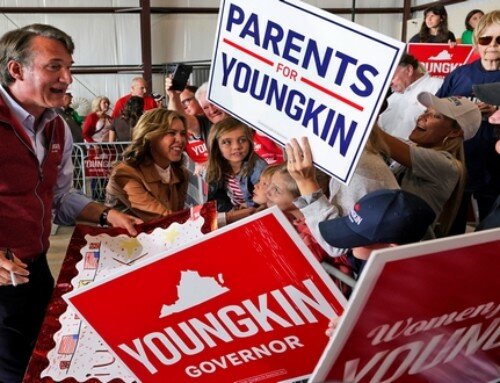After the state of Georgia signed new voting reform laws back in March that are set to go into effect on July 1st, they sparked much controversy across the whole country, with some calling the new laws suppressive. The new bill includes provisions such as:
-
Special ballots will be created for nonpartisan elections
-
Ballots must be printed in black and white ink on security paper
-
A cutoff date of 11 days before a primary, general election or runoff election for mail-in ballot applications
-
A deadline for the issuance of absentee ballots at least 25 days before a federal primary, general election or special election or 22 days before a municipal general election or primary
-
A Georgia state driver’s license number, ID card number, date of birth and the last four digits of a social security number or another approved form of identification must be printed on the outside of an absentee ballot
-
Conditions for rejecting absentee ballots if certain requirements are not met
The bill received much backlash from Democratic politicians, commentators, and even major companies. Even the MLB decided to move the annual All-Star game from Atlanta in protest to the bill, potentially causing the city to miss out on millions of dollars of profit for small businesses and the city overall. Because of these responses, I wanted to research, what states across the country have more voting laws than Georgia, and which ones have much less regulated voting laws. For this article I referred to the National Conference of State Legislatures.
To start off, here are the states that strictly require a photo I.D. to vote, meaning that “voters without acceptable identification must vote on a provisional ballot and also take additional steps after Election Day for it to be counted”:
-
Georgia
-
Kansas
-
Wisconsin
-
Arkansas
-
Indiana
-
Tennessee
-
Mississippi
North Dakota, Arizona, and Ohio require a form of I.D. but it does not have to include a photo. States like Florida, Texas, South Dakota, Idaho, and others request a photo I.D. This means that if a voter cannot present a photo I.D., they will have to write their signature. From there, the signature the voter wrote will be compared by election officials to the signature on file. Other states like Wyoming, Virginia, Utah, Hawaii, Connecticut, and Kentucky provide various ways to confirm voter identity, such as providing date of birth and address, signing an oath or affidavit, or even in some states an election official can just confirm they know who the voter is (Missouri and Alaska).
The following states currently have no documentation required to vote:
-
Oregon
-
Nevada
-
California
-
New Mexico
-
Nebraska
-
Minnesota
-
Illinois
-
North Carolina
-
Pennsylvania
-
District of Columbia
-
Maryland
-
New Jersey
-
New York
-
Massachusetts
-
Vermont
-
Maine
Now let’s discuss early voting laws. 44 states and D.C. currently offer early voting, although the exact days vary by state. The periods of early voting range from three days in advance to Election Day to 45 days. Virtually all states offer some form of early voting and/or absentee voting except for Connecticut, Kentucky, Mississippi, Missouri, New Hampshire, and South Carolina.
We can also examine registration laws by state. 18 states participate in automatic voter registration, meaning that all legal citizens are registered by agencies such as the DMV when they turn the voting age. These states are Alaska, California, Colorado, Connecticut, Illinois, Maine, Maryland, Massachusetts, New Jersey, New Mexico, New York, Nevada, Oregon, Rhode Island, Vermont, Virginia, Washington, and West Virginia, as well as the District of Columbia. A total of 40 states allow online voter registration. The following states offer same-day voting registration and voting:
-
Washington
-
Idaho
-
Hawaii
-
California
-
Nevada
-
Wyoming
-
Utah
-
New Mexico
-
Colorado
-
Minnesota
-
Iowa
-
Wisconsin
-
Illinois
-
Michigan
-
Maryland
-
Connecticut
-
Maine
-
New Hampshire
-
Vermont
-
District of Columbia
Two states, Montana and North Carolina, allow same-day registration, but it can only occur during the early voting period. The rest of the states do not allow same-day registration at all.
From these lists, I found that the states that have laws that are considered “strict”, just want additional steps to confirm identity. For example, although Georgia now requires a photo I.D. to vote, they offer a period of 28-30 days before the election to register; this is technically less strict some other “left-leaning” states like California (15 days). Every state has different laws and regulations concerning voting to meet the needs of their citizens. But at some point, we cannot sacrifice voting security and fraud prevention over these needs.
Ivey Y
CABINET











